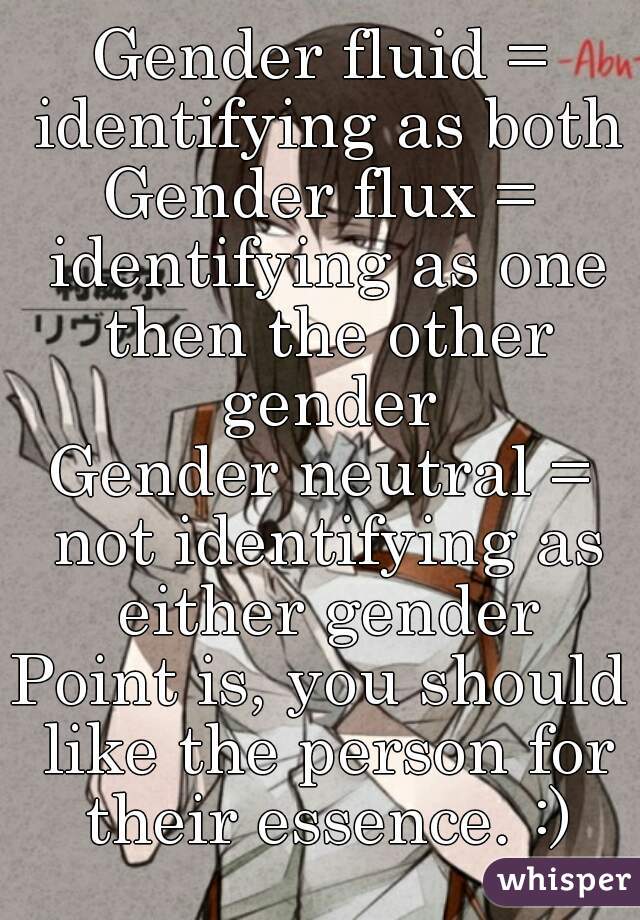
Genderstaticism: prejudice/actions that negatively reinforce gender static assumptions. Monogenderism: prejudice/actions that negatively reinforce assumptions of monogender experience. Even within the trans community, exorsexism is rampant, with binary trans individuals, due to their proximity to the patriarchal cishet assumptions of desires, even independently of the somewhat problematic notion of “passing,” have power we do not. Exorsexism occurs at the structural level and the personal. Binary trans people often have to lie about their identities to get care, and it is all the worse for folks like me. If you live in the UK and are non-binary, there’s a strong likelihood that even the limited gender affirming care available to binary trans people will be barred from you. My safety is at stake if someone decides that a) I’m in the wrong place and b) they’re going to make that my problem.Įxorsexism: (sometimes called enbyphobia) prejudice/actions that negatively reinforce the gender binary.Īn example of exorsexism is that the UK does not recognize non-binary identities. The fact that I need to be very careful using bathrooms in public is a function of transphobia. Transphobia: prejudice or actions that specifically target or disproportionately impact trans folks. Ultimately, our experience is so often one of the imposed labels, and imposing trans on non-binary experiences across the board is just one more such imposition. Trans is a good word certainly, I am trans and have found enormous value in that self-identification, but I want to caution anyone on forcing the identification on anyone.

Additionally, given that the cisgender/transgender dichotomy is borne of a colonialist Western perspective, imposing it on the culturally specific gender experiences of indigenous people, in particular, can be a form of imperialist/racist othering. So many people that could claim the word trans nonetheless choose not to, using other identifiers such as metagender (neither cis nor trans) or just “non-binary/nonbinary” without further specification. Anyone whose gender is not strictly that assigned to them at birth is welcome to the term trans, but trans now expresses a certain community, a certain set of expectations that is neither accurate nor useful for many people that fit that criteria. Trans(gender) is a word I am not going to define, as it has come to take on more meaning than a single definition can do justice. I knew I was non-binary because man hurt and woman was just incorrect, though today, due to my transition, and my presentation, they both hurt a bit.Ĭis(gender): Gender experience is that assigned at birth. Non-binary: Any gender experience outside of a strict, static, binary gender. I notice multigender modes when I want disparate acknowledgments with gendered language simultaneously. Multigender: A person who has multiple genders, possibly simultaneously. Sometimes it’s high, sometimes, it’s low, or even dry, and since I’m fluid more generally, it often ends up filling different shapes and containers. A common example of genderflux is when a person shifts among man, demiboy, and agender.įor me, genderflux is experienced as a kind of water level. Genderflux is often separated out from gender fluidity because of the implication that gender fluidity represents a person who shifts between multiple different genders, but strictly speaking, genderflux is itself a subtype of gender fluidity. Genderflux: A gender that changes in intensity.


I realised I was genderfluid because my facial hair at different times has given me either gender dysphoria or gender euphoria.

Two people might fall under the gender fluid umbrella and have experiences no more similar to each other than either has with even a cisgender person. “Sometimes a man, sometimes a woman” is a common phrasing and while that is one possibility, it is a gross oversimplification of an enormous breadth of experience. Gender Fluidity, even among trans and non-binary spaces, is frequently misunderstood.


 0 kommentar(er)
0 kommentar(er)
